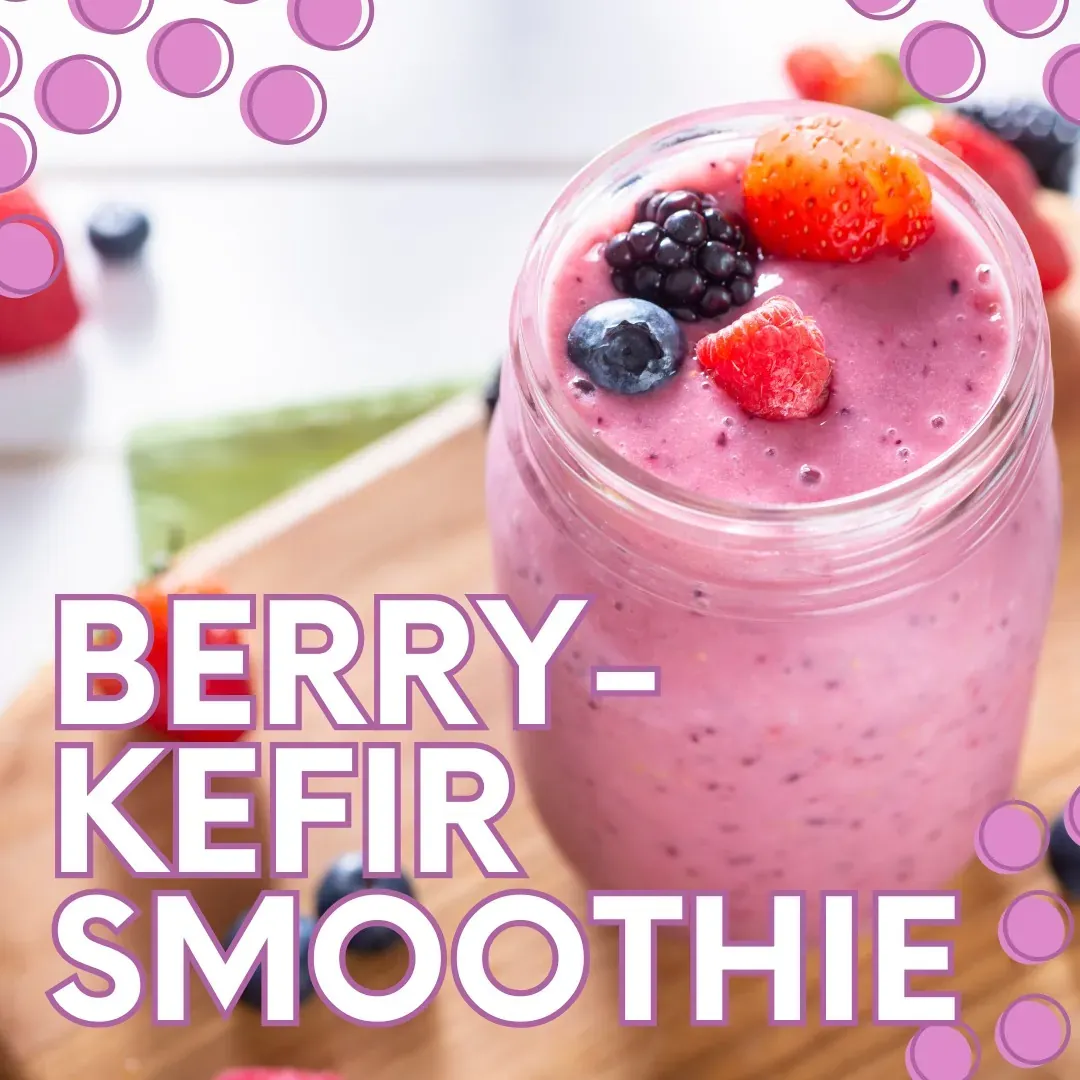Kefir Smoothie for Gut Health – Tasty & Nourishing
Kefir Smoothie for Gut Health powerhouse loaded with probiotics, enzymes, and nutrients that support a healthy gut and digestive system. Kefir is a fermented milk product that was originally developed in the Caucasus Mountains. Kefir has a unique composition and a wide variety of beneficial bacteria and yeast that follow and restore, and balance the fecal microbiome. Pureed with high-fiber fruits like berries, banana, or spinach, it makes a gut-loving mix that helps with digestion, inflammation, and nutrient absorption.

Kefir is made with live cultures that break down lactose and other hard-to-digest components, making it a good option even for some people with lactose intolerance. Further, it boosts immunity by reinforcing the gut wall and promoting antibody secretion. This makes it a great addition to any diet in both taste and function;n, however, it is most beneficial for people looking at natural ways to manage bloating, constipation, or IBS symptoms, being the creamy texture and tangy taste being a bit of a win-win. Regularly drinking these kefir smoothies can balance the gut, increase digestive comfort, and support long-term inside-out health.
Kefir Smoothie Recipe for Gut Health

Kefir Smoothie Recipe
Ingredients
Equipment
Method
- Add Kefir: Pour 1 cup of plain kefir into the blender.
- Add Fruits: Add banana and frozen berries.
- Sweeten (Optional): Add honey or maple syrup for extra sweetness.
- Boost Nutrition: Add chia seeds and cinnamon, if using.
- Blend: Add ice cubes and blend on high for 30–60 seconds until smooth.
- Serve: Pour into glasses and enjoy immediately.
Nutrition for Kefir Smoothie
| Nutrient | Amount per Serving (1 Cup) |
| Calories | ~150–180 kcal |
| Protein | 7–9 g |
| Carbohydrates | 22–28 g |
| Fiber | 3–4 g |
| Fat | 3–5 g |
| Probiotics | Billions of CFUs |
| Calcium | 250–300 mg (25–30% DV) |
| Vitamin B12 | 20–25% DV |
| Vitamin D | 10–15% DV (if fortified) |
| Potassium | 350–400 mg |
| Magnesium | 8–10% DV |
| Vitamin C (from fruit) | 20–25% DV |
| Antioxidants (berries) | High |
Q: Which Kefir is best for Gut Health
A: Plain, organic milk kefir is the healthiest type of kefir for the gut, since it is still raw, rich in live probiotics, and devoid of added sugars or artificial flavors that can damage the gut microbiome. Water kefir from fermented sugar water with fruit is great for people who are intolerant and provides a probiotic boost in a much milder fashion.
Q: Which juice is best for Gut Health
A: Freshly made vegetable juice—especially celery, cucumber, spinach, and carrot juice — is the healthiest gut juice because it helps with hydration, gut-friendly fiber, and anti-inflammatory nutrients. Just ginger or turmeric will also provide digestive aids and lower gut inflammation.
Q: Which is the best yogurt for Gut Health
A: Plain, unsweetened Greek yogurt or natural yogurt with live and active cultures is the best yogurt for gut health, as it is high in probiotics and protein with minimal to no added sugar. Seek labels that say “live active cultures,” such as Lactobacillus and Bifidobacterium — the most beneficial gut strains.
Q: Which fruit juice is good for Gut Health
A: Pineapple juice works quite well for the gut, thanks to the presence of an enzyme (bromelain) that facilitates digestion, while pomegranate juice and apple juice (fresh, never processed) supply polyphenols and dietary fiber that feed beneficial bacteria. Yet, it is better to eat them in moderation and fresh because packaged juices are usually high in sugar.
Q: When to take Probiotics for Gut Health
A: Probiotics should be taken at the optimal time, morning empty stomach 3,0 minutes before meals, when the stomach acid is at a low level and most of the beneficial bacteria survive & reach the intestines. They should be taken at the same time each day, which will be part of the maximum benefit of gut health.
Q: When to take L-glutamine for Gut Health
A: To ensure maximum absorption, l-glutamine is best taken on an empty stomach in the morning or before meals to directly target gut lining repair. Especially effective when taken consistently, it can help to heal leaky gut, reduce gut inflammation, and help with nutrient absorption.
